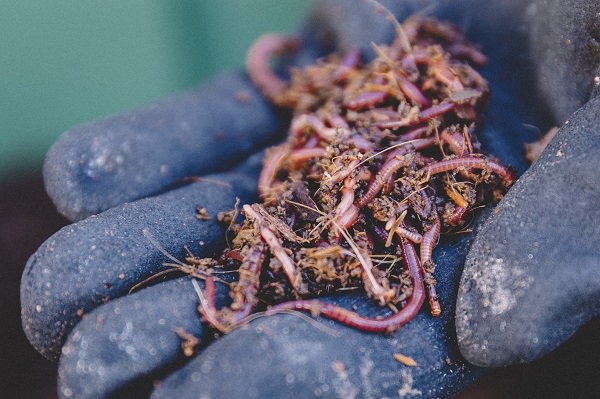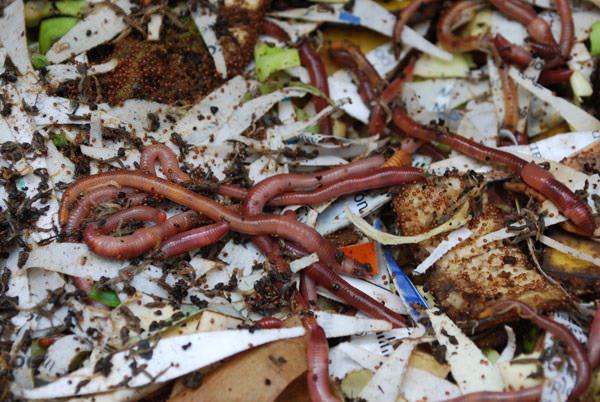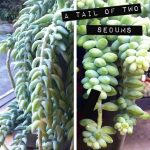The first question which arises in our mind is that why would someone want to feed worms? Well, apart from being used as fish bait they are also drop-dead useful for the soil. Worms make the soil more porous by tunneling through the soil and make it more fertile. Now, that you know the benefits of having worms in the garden, we need to know what do they require for survival.
Here is the list of things worms like to eat
- Coffee grounds, including coffee filters
- Tea bags
- Fruits and vegetable scraps
- Pasta
- Juicer Pulp
- Sawdust and Woodash
- Grains like oatmeal
- Shredded paper
- Shredded cardboard
- Dead flowers
- Eggshells
- Lawn clippings
- Weeds
- Clippings
- Prunings
- Dirt
- Leaves
Things you should keep in mind
- Potato skins, onions, garlic, and banana peel take a long time to be eaten by worms so avoid using them.
- The small and soft scraps are eaten up more quickly by worms.
- Always use untreated sawdust for feeding.
- Crushing and washing eggshells before feeding is advisable.
- Weeds, lawn clippings, prunings, and leaves should be free from any sort of chemical fertilizer.
- Grains should be free from any milk content.
- Soak cardboard and paper in the water before feeding to the worm.
- Do not add too much lawn clippings at a time.
Avoid feeding these things to worms
- Meat, poultry, fish, dairy
- Processed wheat products (Bread, Pasta)
- Citric or acidic fruit skin (Orange, Lemon)
- Potato chips, candy, and oily foods
- Any part of a citrus fruit
- Plastic
- Rubber bands
- Sponges
- Aluminum foil
- Glass
- Dog or cat feces
- Shiny Paper
- A large quantity of meat
How much to feed worms
Now that you know what to feed and what not to feed your worms the next thing you need to know is how much to feed worms. Just like the lack of food causes problem overfeeding is also problematic for worms. Keep in mind that there is a difference between decomposing food and rotten food. Worms like to eat away the food as soon as it starts to decompose. Providing too much food at a time can cause rotting in food even before worms eat them. Food scraps will start to produce fowl and fishy smell. Not only that but it also affects the lifecycle of worms. As worms breath through their skin, it becomes difficult for them to breathe under anaerobic conditions i.e; in lack of oxygen. These conditions are created by rotting food which ultimately becomes a mortal threat for worms. So what’s the solution for this? Well, its simple actually the volume of food provided should be equal to the number of worms present. Start off by adding a small quantity of food scrap and check that leftover food does not start to accumulate. If it does reduce the quantity. With time as the number of worms increases, you can increase the quantity of food you provide. One good way to check that you are providing an optimum quantity of food is by checking that the uneaten scraps are nor more than 5 cm deep.




